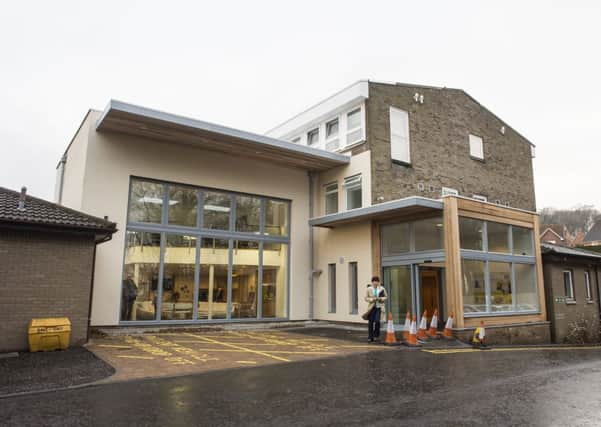Care home closes 25% of its beds


Marie Curie Hospice in Fairmilehead has struggled to keep nursing and administrative staff, with a fifth of employees leaving yearly.
The shortages have forced charity bosses to make the decision to temporarily reduce the number of beds – often used as respite for terminally ill patients – from 25 to 18.
Advertisement
Hide AdAdvertisement
Hide AdInspectors from Healthcare Improvement Scotland, who carried out an unannounced visit in July, were told this was to provide “breathing space” to the remaining workforce while new people are trained.
Concerns about staffing levels at night were also flagged up by patients’ families who complained medication was sometimes given late while others did not know their carers. One patient said: “Yes there are enough staff but not when there is staff illness. There are a lot of different nurses and this makes remembering names difficult.”
Another said: “No I don’t think there’s enough staff at night, I feel stuck in my bed.”
Questions have also been raised about continuity of care, with more than a fifth of employees being agency staff.
Overall, around 2000 patients visit the facility to receive day-service treatments, and about 500 a year are treated as in-patients. Councillor Ricky Henderson, health leader at the city council, said the challenges facing the hospice were “widespread” within the health sector.
He said: “It is something society will have to deal with if we are going to continue to care for people who have health conditions and the elderly.”
The health watchdog praised the standard of care, treatment and support given to patients and relatives. Its report said the hospice has a “dedicated and caring team”, adding the “high-quality service which was appreciated and commended by patients and relatives”.
But the care regulator urged bosses to find a method of ensuring there were enough staff to fulfil patient needs. Susan Brimelow, chief inspector for HIS, said the inspection had identified several areas where the hospice must make improvements.
Advertisement
Hide AdAdvertisement
Hide AdShe said: “These include ensuring concerns raised by patients and relatives are recorded and acted upon, and improving recognition of adult support and protection issues. However, patients commented positively on quality of care received.”
Caroline Hamblett, director of services for Marie Curie, said the charity welcomed the findings but was unable to comment on the reasons behind the staffing issues.
She said: “Since the inspection in July, we’ve taken immediate steps to ensure that where the report has identified requirements, we have addressed these as a priority. Our focus is to deliver the best possible care.”
‘You only get one chance’
Dr Julie Read, who has both professional and personal experience of Marie Curie Hospice, said it was vital beds were available.
As a Liberton GP, she refers patients to the hospice but also came into personal contact with it during her husband Anthony’s 12-year battle with a brain tumour. “You only get one chance to care for somebody in the end stages of their life and you have got to do it properly,” she said. “As I go through my grieving process, and it’s been two-and-a-half years now, you still go back to those days and what was said, it’s very vivid.”
She added it would be more difficult for agency staff who do not know the system and are there to “fill the gaps” cheaply.
“The care that is provided is wonderful but you need the continuity of staff because they gain the experience.”